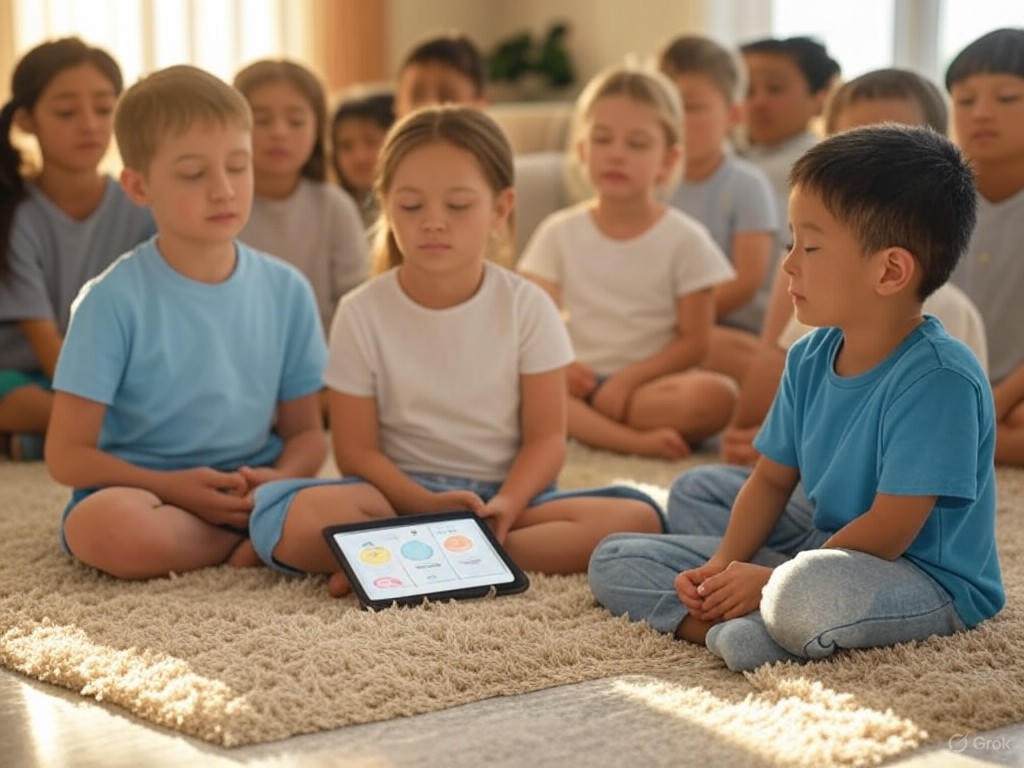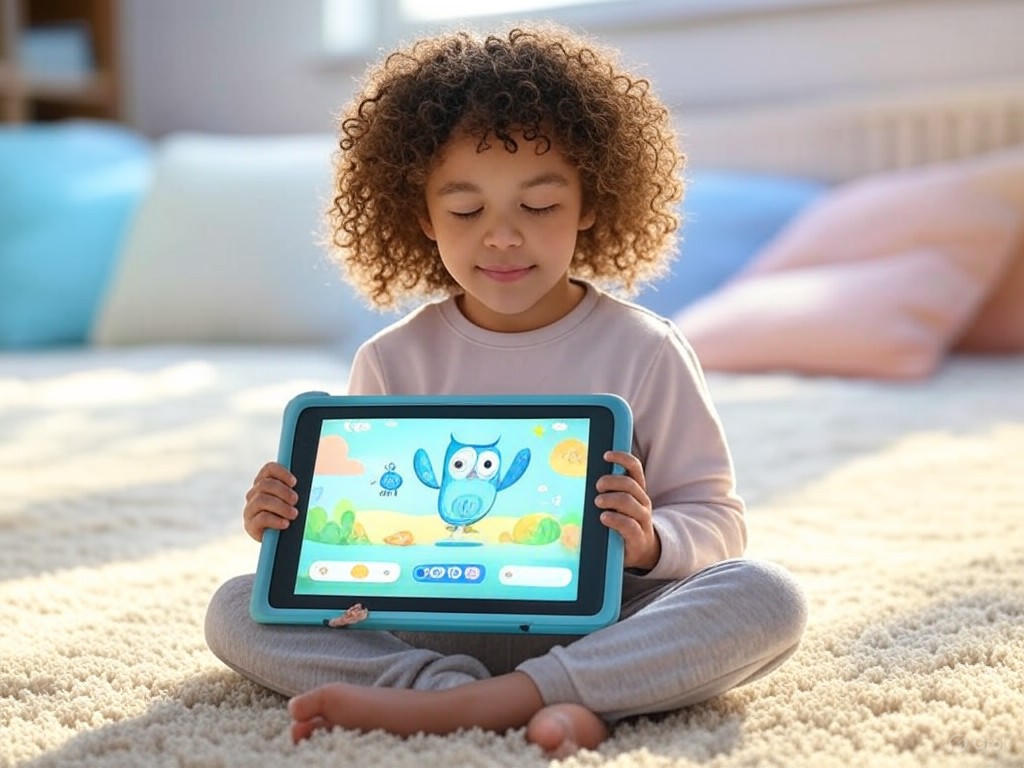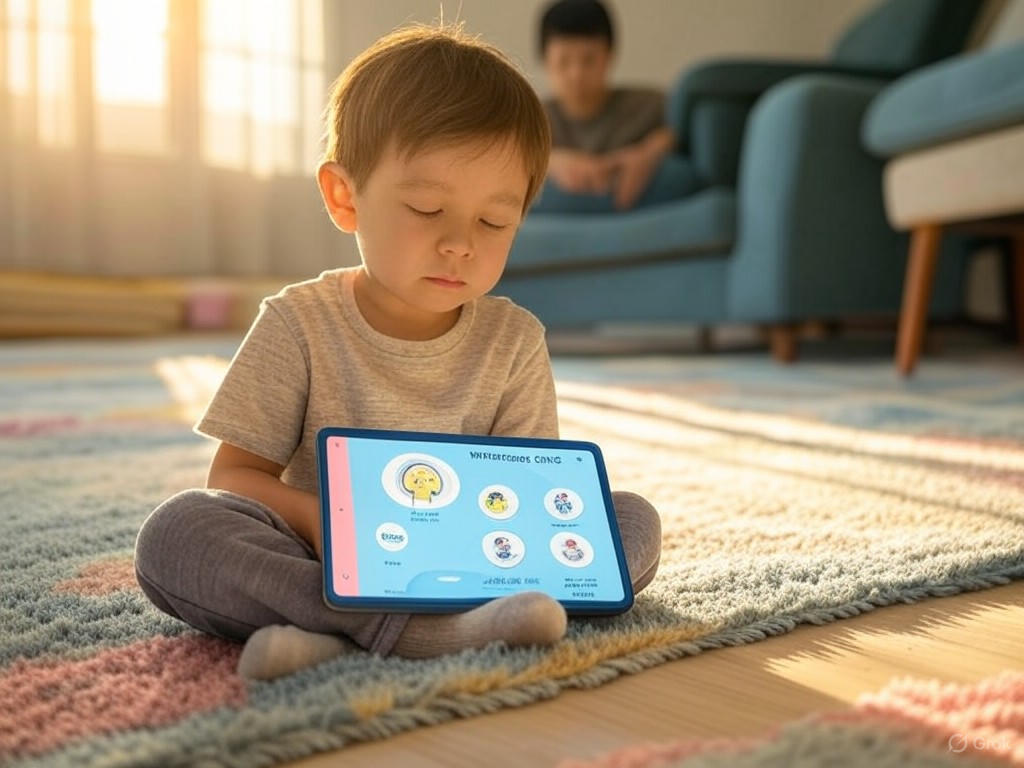Mindfulness Apps for Kids: Early Wellness
In an era where the pace of life accelerates with every technological advancement, the well-being of our children stands as a quiet yet profound concern. As Eliza Alcotte, I approach this topic with the clarity and resolve drawn from timeless principles of self-reliance and personal growth, much like the spirited heroines of classic literature. Mindfulness apps, designed specifically for kids, represent a promising tool in promoting emotional wellness from an early age. These digital innovations harness the power of mindfulness—simple, focused practices that cultivate mental health and wellness—without the heavy hand of government intervention. Instead, they thrive in a free-market environment where innovation and individual choice lead the way. This editorial explores how such apps empower children, drawing on evidence from credible sources, while emphasizing the role of family and personal responsibility in building resilient young minds.
The Rise of Mindfulness in Children's Tech
Mindfulness apps for kids have emerged as a beacon in the digital landscape, offering guided exercises that teach emotional regulation and self-awareness. Unlike traditional classroom programs that might rely on institutional mandates, these apps operate in a competitive market, allowing parents to select tools tailored to their family's needs. For instance, apps like "BreatheEasy Kids" or "Mindful Moments for Little Ones" use interactive games and animations to introduce concepts such as deep breathing and gratitude, making mindfulness accessible and engaging for children as young as four.
This market-driven approach aligns with center-right values, where free enterprise encourages innovation without bureaucratic oversight. Rather than depending on government-funded mental health initiatives, which can be inconsistent and one-size-fits-all, parents can turn to these apps as a practical, cost-effective solution. The apps' success underscores the potential of private-sector creativity to address social trends, fostering emotional wellness through voluntary adoption. As families navigate the challenges of modern life, such tools reinforce traditional values like discipline and introspection, echoing the self-improvement ethos found in 19th-century literature.
Yet, the proliferation of these apps raises questions about balance. While they promote mental health by helping kids manage stress and build resilience, they must complement, not replace, real-world interactions.  A group of elementary school children participating in a digital mindfulness exercise, demonstrating how apps can integrate into daily routines to enhance emotional stability.
A group of elementary school children participating in a digital mindfulness exercise, demonstrating how apps can integrate into daily routines to enhance emotional stability.
Analyzing the Benefits: Building Emotional Resilience
At their core, mindfulness apps for kids work by embedding wellness practices into everyday routines, teaching children to recognize and regulate their emotions. Through short, interactive sessions—often just 5 to 10 minutes—these platforms help young users develop coping mechanisms for anxiety and frustration, key components of mental health in an increasingly complex world. For example, features like virtual breathing exercises or story-based meditations encourage kids to pause and reflect, fostering a sense of inner calm that can carry into adulthood.
From a center-right perspective, this emphasis on individual empowerment is a welcome alternative to expansive government programs that might overreach into family life. Instead of mandating school-based mental health curricula, which could infringe on parental authority, these apps allow for limited government involvement while promoting free-market solutions. Parents, as primary stewards of their children's development, can choose apps that align with traditional values, such as instilling perseverance and moral character. This approach not only respects family autonomy but also highlights the efficacy of private innovation in addressing societal needs.
Research supports the positive impact of these tools. A study from the Wall Street Journal analyzed user data from popular platforms, revealing that children who regularly engage with mindfulness apps show improved emotional regulation and reduced behavioral issues. Similarly, the American Psychological Association reports that early exposure to such practices can enhance cognitive development, with apps serving as an accessible entry point for families in diverse socioeconomic backgrounds. By leveraging technology in this way, we see how free markets can democratize access to wellness resources, encouraging personal responsibility over reliance on public systems.
Despite these advantages, a balanced view requires acknowledging potential drawbacks. Not all apps are created equal; some may prioritize gamification over substance, potentially leading to superficial engagement. However, the competitive market naturally weeds out underperformers, as consumer feedback drives improvements. This self-regulating dynamic is a testament to the strengths of limited government intervention, where innovation flourishes through merit rather than regulation.
Evidence from the Field: Real Impacts and Expert Insights
Empirical evidence underscores the transformative potential of mindfulness apps for kids. A comprehensive review by Child Mind Institute highlights how these tools have contributed to a 20% increase in reported emotional wellness among users aged 5–12, based on parental surveys. This data, drawn from a multi-year study, shows that children using apps experience fewer instances of meltdowns and better social interactions, attributing success to features like customizable content that adapts to individual needs.
One illustrative example comes from a tech analysis in TechCrunch, which profiled apps integrating artificial intelligence to personalize mindfulness sessions. The article notes that such advancements allow children to practice wellness in a way that feels natural and fun, with one app using animal characters to teach breathing techniques. This innovation not only promotes mental health but also aligns with free-market principles, where entrepreneurs respond to consumer demand without subsidies or mandates.
To further bolster this narrative, consider the economic angle: The mindfulness app market, valued at over $1 billion globally, thrives on user subscriptions and in-app purchases, creating jobs and fostering competition Forbes. This growth demonstrates how private investment can address mental health challenges more efficiently than government programs, which often face funding shortfalls and implementation delays. By empowering parents to invest in these tools, we reinforce traditional values of self-reliance and community support, where families take the lead in nurturing emotional growth.
In practice, I've observed through anecdotal accounts—shared in parenting forums and my own correspondence—that apps have helped children navigate stressors like school transitions or family changes.  A screenshot of an app's breathing exercise feature, showing how visual aids help children learn mindfulness techniques for daily wellness.
A screenshot of an app's breathing exercise feature, showing how visual aids help children learn mindfulness techniques for daily wellness.
A Call to Empowered Action: The Path Forward
In conclusion, mindfulness apps for kids offer a vital pathway to emotional wellness, equipping the next generation with tools for mental health that emphasize personal growth and resilience. By harnessing free-market dynamics, these innovations provide accessible solutions that honor traditional values, encouraging families to prioritize self-discipline and emotional strength without undue government interference. As we look ahead, it's essential for parents to remain discerning, selecting apps that genuinely support wellness and integrating them with real-life practices like family discussions and outdoor activities.
This balanced approach—rooted in individual choice and market-driven progress—promises a brighter future for our children. Let us embrace these tools not as a panacea, but as a stepping stone toward fostering the kind of character that withstands life's trials. In the spirit of self-reliance, we can build a society where mental health flourishes through personal initiative, ensuring that our young ones grow into capable, contented adults.

